Selling Your Jeep? How to Properly Transfer Your Warranty to the New Owner
So, the time has come to bid farewell to your beloved Jeep. Whether you're upgrading to a newer model, exploring a different adventure vehicle, or simply need a change, selling your Jeep can be an exciting, albeit sometimes complex, process. Beyond cleaning it up, snapping great photos, and negotiating a fair price, there's a crucial step many private sellers overlook: properly transferring the vehicle's warranty. This isn't just a courtesy; it's a value-add for your buyer and can significantly smooth out the sales process. A transferable warranty can increase your Jeep's appeal and even its resale value. Let's dive deep into how you can ensure your Jeep's warranty makes a seamless journey to its new owner.Why Proper Warranty Transfer Matters for Sellers and Buyers
Transferring your Jeep's warranty isn't just good practice; it's a win-win for both you and the prospective buyer. For you, the seller, offering a transferable warranty enhances your vehicle's attractiveness in a competitive market. It demonstrates transparency and provides significant peace of mind to the buyer, which can lead to a quicker sale and potentially a better price. It shows that you've maintained the vehicle well and are confident in its condition. For the buyer, inheriting a valid warranty means they're protected against unexpected repair costs shortly after purchase, a common concern with used vehicles. This protection is a huge selling point, especially for a complex vehicle like a Jeep, known for its off-road capabilities and specialized components. Imagine the confidence a buyer feels knowing that their newly acquired Jeep Wrangler or Grand Cherokee is still covered for major components like the engine or transmission.Understanding Your Jeep's Warranty Types
Before you can transfer a warranty, you need to understand what kind of warranty your Jeep currently has. Jeeps, like most new vehicles, come with a factory warranty from Stellantis (formerly Chrysler, Fiat, Dodge, Ram, Jeep, etc.). Many owners also opt for extended service contracts. Knowing the specifics of each is crucial for a smooth transfer process. - Factory Warranty: This is the original warranty provided by the manufacturer when the Jeep was purchased new. It typically includes a Basic Limited Warranty (bumper-to-bumper), a Powertrain Limited Warranty (covering engine, transmission, and drivetrain components), and sometimes a Rust-Through Limited Warranty. These warranties usually have time and mileage limits (e.g., 3 years/36,000 miles for basic, 5 years/60,000 miles for powertrain). The key here is whether the remainder of this original factory warranty is transferable. In most cases, the basic and powertrain factory warranties are automatically transferable to subsequent owners, as long as they are still active and within their time/mileage limits.
- Extended Service Contracts (Mopar Vehicle Protection Plans or Third-Party): Beyond the factory warranty, many Jeep owners invest in extended service contracts. Mopar Vehicle Protection plans are manufacturer-backed extended warranties, offering comprehensive coverage options for longer durations. There are also numerous third-party extended warranty providers. The transferability of these extended contracts varies significantly. Manufacturer-backed plans like Mopar Vehicle Protection are often transferable, usually for a small fee. Third-party warranties, however, might have more restrictive transfer policies, or in some cases, might not be transferable at all.
Is Your Jeep's Warranty Transferable? Key Eligibility Factors
Not all warranties are created equal, especially when it comes to transferability. Several factors determine if your Jeep's warranty can be passed on to a new owner. The most important is the type of warranty (as discussed above). Factory warranties are generally transferable. Extended warranties, particularly Mopar Vehicle Protection plans, are usually transferable, but often come with a specific procedure and a transfer fee. Third-party extended warranties are the most variable; you'll need to check the specific terms and conditions of your contract. Additionally, the vehicle's history can play a role. If the Jeep has a salvage title, has been extensively modified in a way that voids the warranty, or has a history of unaddressed recalls, the warranty might no longer be valid or transferable. Always refer to your original warranty documents or contact the warranty provider directly to confirm eligibility and any specific requirements for transfer. Don't assume – verify!Step-by-Step Guide to Transferring Your Mopar Vehicle Protection Plan
If you have a Mopar Vehicle Protection Plan, transferring it to the new owner is a straightforward process, but it requires attention to detail. Follow these steps to ensure a smooth transition:- Gather All Necessary Documentation: Before you do anything, locate your original Mopar Vehicle Protection Plan contract. You'll also need the vehicle's title, the odometer statement at the time of sale, and the new owner's contact information. Having these readily available will expedite the process.
- Contact Mopar or an Authorized Jeep Dealership: The easiest way to initiate the transfer is by contacting Mopar Vehicle Protection directly or visiting an authorized Jeep dealership. Explain that you are selling your Jeep and wish to transfer your extended service contract to the new owner. They will guide you through their specific transfer protocol.
- Complete the Transfer Request Form: Mopar or the dealership will provide you with a warranty transfer request form. This form typically requires information about the current owner (you), the new owner, and the vehicle itself (VIN, mileage, date of sale). Ensure all fields are filled out accurately and completely to avoid delays. Both you and the new owner may need to sign this document.
- Pay the Transfer Fee: Most transferable extended warranties, including Mopar plans, come with a small administrative fee for the transfer. This fee is usually a one-time charge, often between $50 and $100. Be prepared to pay this fee, or discuss with the buyer who will cover it as part of the sale agreement.
- Confirm the Transfer: After submitting the form and fee, follow up to confirm that the transfer has been processed successfully. Request a confirmation in writing for your records and for the new owner. This ensures that the new owner has peace of mind that their warranty is active.
Transferring Third-Party Extended Warranties
For third-party extended warranties (those not administered by Mopar), the process can differ significantly. You will need to directly contact the specific third-party warranty provider whose plan you purchased. Each provider will have its own set of rules, documentation requirements, and transfer fees. Some third-party warranties may not be transferable at all, while others may require a more involved process or a higher fee. It's crucial to review your contract's fine print or call their customer service line well in advance of the sale. Be prepared to provide the vehicle's VIN, your account number, and the new owner's details. Transparent communication with the buyer about the transferability (or lack thereof) of a third-party warranty is paramount to avoid future misunderstandings.What to Communicate to the New Owner About the Warranty
Open and honest communication about your Jeep's warranty is key to a successful and trustworthy sale. When discussing the sale with a potential buyer, clearly explain what type of warranty the Jeep has (factory or extended), its current status, and if it's transferable. Provide them with copies of the warranty documents and explain the transfer process, including any associated fees. Let them know if they will be responsible for the transfer fee, or if you plan to cover it. This transparency builds trust and helps the buyer feel confident in their purchase. It’s also wise to provide them with the contact information for the warranty provider and any relevant account numbers once the sale is complete and the transfer initiated.Benefits of a Smooth Warranty Transfer for Your Jeep's Resale
A well-executed warranty transfer adds substantial value to your Jeep's resale package. It differentiates your vehicle from others on the market that might not offer such protection or where the warranty transfer is complicated. Buyers are often willing to pay a premium for a used vehicle that comes with an active warranty, as it mitigates the financial risk of post-purchase repairs. This translates into a potentially higher selling price and a faster sale for you. Furthermore, it reflects positively on you as a seller, suggesting that you are meticulous and trustworthy, fostering a positive transaction experience for both parties. Ultimately, a smooth warranty transfer can turn a good deal into a great one for everyone involved.Conclusion
Selling your Jeep is more than just handing over the keys; it’s about ensuring a smooth transition for both the vehicle and its new owner. Properly transferring your Jeep's warranty, whether it's the remaining factory coverage or an extended service contract, is a critical step that benefits everyone. It adds significant value to your sale, builds trust with the buyer, and provides essential peace of mind. By understanding your warranty, gathering the right documents, and following the correct procedures, you can ensure your beloved Jeep continues its adventures with its new owner, fully protected. Happy selling, and may your Jeep continue to conquer trails for years to come!

